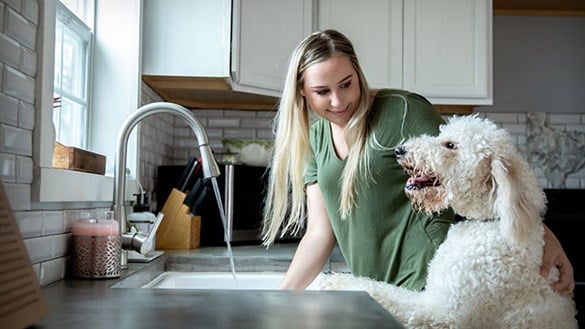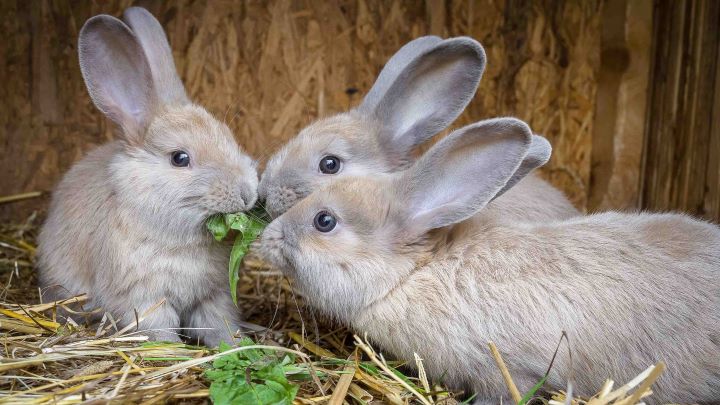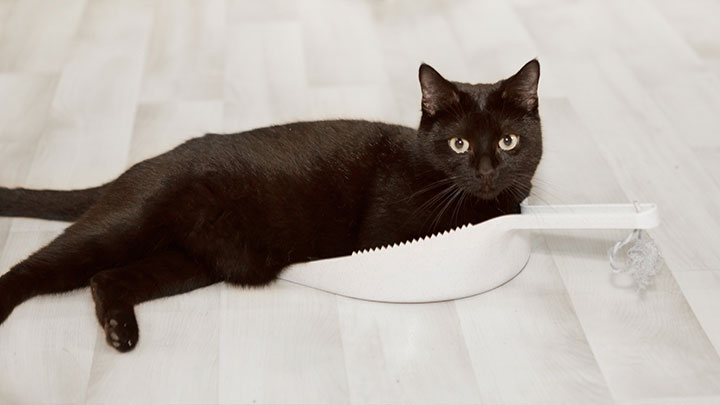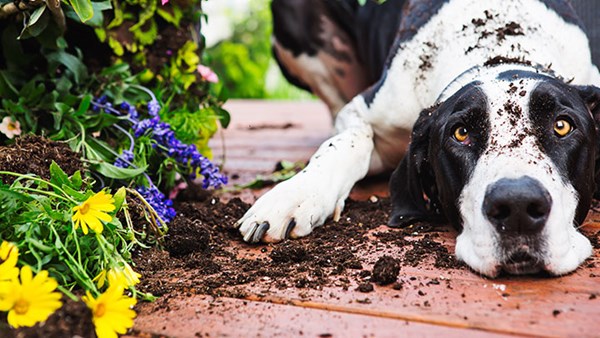Your Guide To Pet-Friendly Spring Cleaning
If you're one of the many people planning to spruce up their home as the weather gets nicer, don't forget that many cleaning products and equipment can cause problems for your pets.

What household cleaners are toxic for your pet?
Household cleaners are highly toxic, and playful pets often mistake their brightly coloured and oddly shaped bottles for toys. In most cases, the astringent smell will put them off actually drinking the contents, but if they walk on recently cleaned surfaces or through spillages their paws will pick up residues which they may lick later.
Common toxic cleaners to watch out for:
Bleach
Bleach can cause stomach issues and corrosion around the mouth and in the gut if drunk. It can also cause further issues if splashed in the eye or on the skin.
Laundry detergent
Laundry detergent (tablets, pods and powder), soaps and multipurpose cleaners can cause vomiting, which may appear foamy or frothy, as well as stomach upset and dehydration.
Dishwasher tablets and salt
Dishwasher tablets can look like treats to pets, but cause vomiting, diarrhoea and burns around the mouth and in the stomach.
Dishwasher salt causes extreme thirst and urination, vomiting, and decreased appetite.
Oven and drain cleaners
Oven and drain cleaners are highly caustic and can cause internal tissue damage and chemical burns around the mouth.
Air fresheners
Air fresheners can irritate the eyes, nose and throat, cause headaches and nausea and even damage the liver, kidney and central nervous system if swallowed in large quantities.
How to clean safely around pets
Always store household cleaning products well out of reach in a secure cupboard or box.
Allow cleaned surfaces to dry completely before letting your pet walk on them and clean up any spills immediately.
Electrical cleaning equipment hazards for pets
Vacuum cleaners, steam mops and carpet cleaners all pose an electrical hazard to pets. It’s always worth checking cables and plugs are in good condition to avoid electrocution, and that they’re neatly stored away when not in use.
Loud cleaning equipment can also be stressful for your pet, if this is the case – try and ensure that are out of the way or sleeping while you’re cleaning.

Spring cleaning your pet’s belongings
Now’s a great time to give your pet’s belongings a deep clean to remove dirt, hair and bacteria.

Ideally, you’ll be cleaning their bowls, bedding and blankets as regularly as possible, so now’s the time to start a regular cleaning regime to keep your pet, and your family, safe.
- Water and food bowls harbour bacteria from food and saliva and should be cleaned at least once a day in hot, soapy water
- Bedding and blankets should be cleaned once a week on a hot cycle in the washing machine. Use a mild, pet-friendly detergent
- Toys should be cleaned weekly either in hot, soapy water for hard, rubber toys, or on a hot washing machine cycle with mild detergent for soft, fabric toys
- Litter boxes should be scooped after every use and the litter changed at least once a week. Use a mild soap and hot water to clean the tray itself once a week
- Leads and harnesses should be cleaned once a month either in the washing machine or by hand if they’re leather
- Collars should be cleaned every week in the washing machine or in hot water with mild detergent. Make sure it’s completely dry before putting it back on your pet to avoid bacterial growth and have a spare handy while the other one is in the wash
For even more pet advice on keeping your pet safe during spring cleaning, speak to your local Medivet practice.

Poisons Checker
Use our poison checker if you want to know more about products or substances that may harm your pet.
Find your nearest practice
Spring Cleaning FAQs
Any new household appliance will bring new sights and sounds for your pet. Introduce your pet slowly to the robotic vacuum cleaner, getting them used to the vacuum and reassuring them with lots of cuddles and treats.
Always read the instructions and/or guidance sheet and look at for any information on use of the product around pets. Regardless of the product, it's a good idea to prevent pets walking on freshly disinfected damp surfaces such as a wet floor, and they may lick their paws, and thus the product off.
Related Articles

Keeping Your Pet Safe This Easter
Stay one step ahead and prepare your pet for Easter with our seasonal advice.
Read article
Toxic Bulbs To Be Aware Of
Some Spring bulbs and flowers are harmful to dogs – so keep an eye on your pooch, particularly if they enjoy digging.
Read article
Keeping Your Pet Safe In The Garden
Your garden probably contains a few hidden dangers that can injure or poison your pet.
Read article

